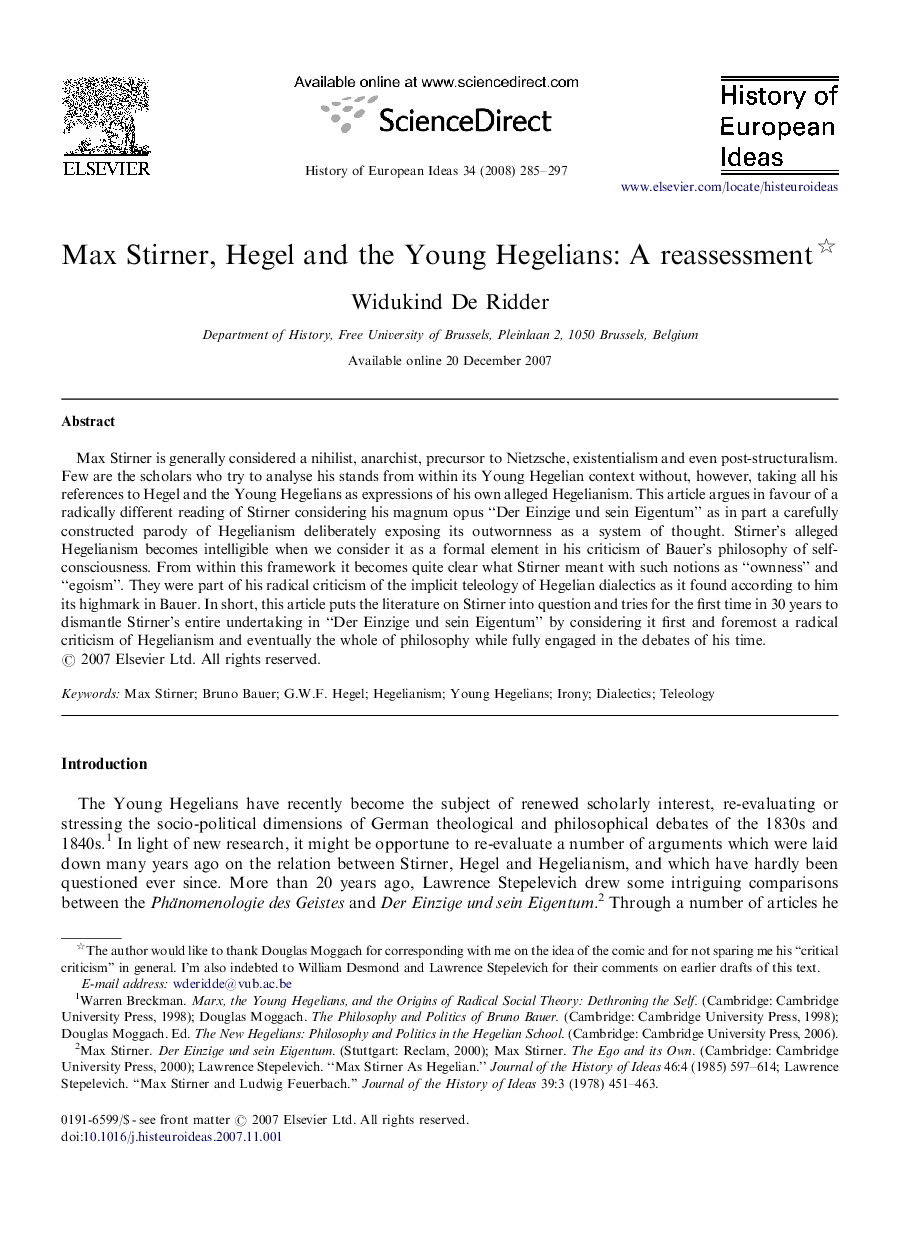| Article ID | Journal | Published Year | Pages | File Type |
|---|---|---|---|---|
| 1159173 | History of European Ideas | 2008 | 13 Pages |
Max Stirner is generally considered a nihilist, anarchist, precursor to Nietzsche, existentialism and even post-structuralism. Few are the scholars who try to analyse his stands from within its Young Hegelian context without, however, taking all his references to Hegel and the Young Hegelians as expressions of his own alleged Hegelianism. This article argues in favour of a radically different reading of Stirner considering his magnum opus “Der Einzige und sein Eigentum” as in part a carefully constructed parody of Hegelianism deliberately exposing its outwornness as a system of thought. Stirner's alleged Hegelianism becomes intelligible when we consider it as a formal element in his criticism of Bauer's philosophy of self-consciousness. From within this framework it becomes quite clear what Stirner meant with such notions as “ownness” and “egoism”. They were part of his radical criticism of the implicit teleology of Hegelian dialectics as it found according to him its highmark in Bauer. In short, this article puts the literature on Stirner into question and tries for the first time in 30 years to dismantle Stirner's entire undertaking in “Der Einzige und sein Eigentum” by considering it first and foremost a radical criticism of Hegelianism and eventually the whole of philosophy while fully engaged in the debates of his time.
